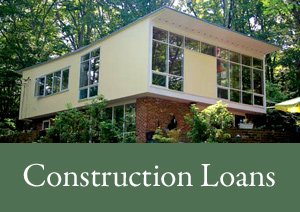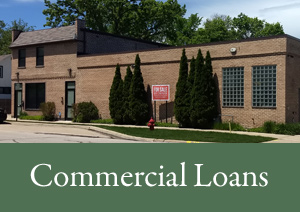Post
What Factors Influence the Interest Rates on Construction Loans?

When planning to build your dream home or undertake a significant renovation, understanding the factors that influence construction loan interest rates is crucial. These rates can significantly impact your overall project cost and financial planning. In this article, we’ll explore the key elements that determine construction loan interest rates to help you make informed decisions.
Overview of Construction Loans
Construction loans are short-term, high-interest loans used to fund the construction of a building or renovation project. Unlike traditional mortgages, which are based on the value of an existing property, construction loans are based on the projected value of the property upon completion.
There are two main types of construction loans:
- Construction-to-permanent loans: These loans cover the construction phase and automatically convert to a permanent mortgage once the project is finished.
- Stand-alone construction loans: These loans only cover the construction period. Once the construction is complete, you must apply for a separate mortgage to pay off the construction loan.
Key Factors Influencing Construction Loan Interest Rates
Borrower’s Creditworthiness
One of the most significant factors affecting your construction loan interest rate is your creditworthiness. Lenders look at your credit score and credit history to assess the risk of lending to you. A higher credit score often translates to a lower interest rate because it indicates that you are a reliable borrower. Conversely, a lower credit score might lead to higher interest rates as the lender takes on more risk.
Loan Amount and Project Size
The total loan amount and the size of your construction project also play a crucial role in determining the interest rate. Larger projects and higher loan amounts generally come with more risk for lenders, potentially leading to higher interest rates. On the other hand, smaller projects with lower loan amounts may attract lower rates due to the reduced risk involved.
Loan-to-Value Ratio (LTV)
The Loan-to-Value (LTV) ratio is the ratio of the loan amount to the appraised value of the completed property. A lower LTV ratio indicates that the borrower is putting more money down, which lowers the lender’s risk and can result in a lower interest rate. A higher LTV ratio means higher risk for the lender, often leading to higher interest rates.
Economic Conditions
Interest rates on construction loans are also influenced by the broader economic climate. Factors such as inflation, the Federal Reserve’s interest rate policies, and overall economic growth impact how much it costs to borrow money. During periods of economic stability and low inflation, interest rates tend to be lower. Conversely, during times of economic uncertainty or high inflation, interest rates may rise.
Duration of the Loan
The length of your construction loan term can affect the interest rate. Short-term loans might have lower interest rates because the lender’s exposure to risk is for a shorter period. However, the shorter duration means higher monthly payments. Longer-term loans might have higher interest rates due to the extended risk period for lenders.
Lender’s Risk Assessment
Lenders conduct a thorough risk assessment of the construction project before approving the loan. They evaluate the project’s feasibility, the builder’s experience, and the borrower’s financial stability. Projects perceived as high risk might attract higher interest rates to compensate for the potential risks involved. Conversely, well-planned projects with reputable builders might secure lower interest rates.
Down Payment Size
The size of your down payment significantly influences your construction loan interest rate. A larger down payment reduces the loan amount, lowering the lender’s risk. This often results in a lower interest rate. A smaller down payment increases the lender’s risk, which can lead to higher interest rates.
Property Location
The location of the construction project can also affect the interest rate. Properties in economically stable and growing areas are seen as lower risk, which can result in lower interest rates. Conversely, properties in areas with economic challenges or low growth potential might attract higher rates due to increased risk.
Builder’s Reputation and Experience
Lenders consider the reputation and experience of the builder when determining the interest rate for a construction loan. A builder with a proven track record and solid reputation can lower the perceived risk of the project, leading to more favorable interest rates. In contrast, using a less experienced or less reputable builder might result in higher rates due to the increased risk.
Additional Considerations
Fixed vs. Variable Interest Rates
Construction loans can have either fixed or variable interest rates. Fixed rates remain constant throughout the loan term, providing predictability in your payments. Variable rates can change based on market conditions, which means your payments could increase or decrease over time. Each type has its pros and cons, depending on your financial situation and risk tolerance.
Loan Structure and Disbursement Schedule
The structure of your loan and how the funds are disbursed can also influence interest rates. Construction loans are typically disbursed in stages, known as draws, as different milestones of the construction project are completed. The interest is usually charged only on the amount disbursed, not the total loan amount, which can affect the overall cost of borrowing.
Regulatory Environment
Government regulations and policies can impact interest rates on construction loans. Changes in regulations, such as new lending rules or adjustments to the Federal Reserve’s policies, can influence the cost of borrowing. Staying informed about regulatory changes can help you anticipate shifts in interest rates.
Strategies to Secure Better Interest Rates
Improving Credit Score
Enhancing your credit score is one of the most effective ways to secure a lower interest rate on a construction loan. Paying down debt, avoiding new credit inquiries, and correcting any errors on your credit report can improve your score over time.
Increasing Down Payment
Offering a larger down payment reduces the lender’s risk and can lead to lower interest rates. If possible, save up to increase your down payment, which can result in significant savings over the life of the loan.
Choosing a Reputable Builder
Selecting an experienced and reputable builder can positively impact your loan application. Lenders are more likely to offer favorable terms and lower interest rates if they trust the builder to complete the project successfully and on time.
Shopping Around for Lenders
Different lenders offer varying interest rates and terms. Shopping around and comparing offers from multiple lenders can help you find the best deal. Don’t hesitate to negotiate terms and rates to secure the most favorable conditions for your loan.
Locking in Rates
Interest rates can fluctuate based on market conditions. If you find a favorable rate, consider locking it in to avoid the risk of rates increasing before your loan is finalized. Discuss rate lock options with your lender to ensure you secure the best possible rate.
Conclusion
Understanding the factors that influence construction loan interest rates can help you make informed decisions and secure better loan terms. Key factors include your creditworthiness, loan amount, LTV ratio, economic conditions, loan duration, lender’s risk assessment, down payment size, property location, and the builder’s reputation. By improving your credit score, increasing your down payment, choosing a reputable builder, shopping around for lenders, and locking in favorable rates, you can effectively manage your construction loan costs.
If you’re ready to explore construction loan options or need expert advice, contact 1st Eagle Mortgage. We’re here to help you navigate the complexities of construction financing and find the best solutions for your needs.
No comments yet




